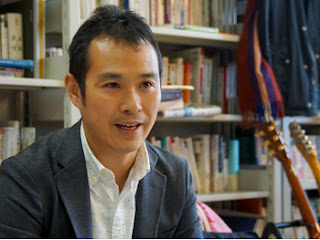Wataru Kusaka: Moral Politics in the Philippines
In
“Moral Politics in the Philippines,” Wataru Kusaka explains the rise of moral
antagonism between the “mass” and the “civic” spheres of Philippine society. The
scholar describes the moralization of politics as “the transformation of
interest politics, centered around resource distribution, into moral politics
predicated on definitions of right and wrong.” After Marcos, a moral divide in
the country has emerged between the middle class, with their self-proclaimed ethical
astuteness, and the masses, who are perceived to be too dependent and lazy.
Resentment,
according to Kusaka, characterizes much of the politics in the Third World. In
this regard, society has fragmented into a “we/they” in which individuals who
consider themselves as “upright citizens” stand in opposition to the masses who
are hastily judged as blameworthy of their own misery. But Kusaka thinks that
democracy cannot depend on the purported rise of the civic consciousness of the
middle class who sees the poor outside their gated communities as “others.”
Moral values, he says, “are not inclusive or unique to the civic sphere.”
The inclination of the masses to vote for
actor-politicians during elections is viewed as blind devotion. Kusaka notes
that it is usually the case that the educated class think of themselves as “responsible
citizens” whereas the poor in the slums are wrongly labelled as unintelligent
voters who can be easily manipulated by money and popularity. The middle class
strongly believe that they carry all the burdens of society, although in reality
national solidarity is not the sole business of those who are the top of the
hierarchy.
The
masses are mocked for their voting behavior while those who belong to the upper
class are exalted for their political principles. In this sense, the poor are
considered as the greatest threat to democracy instead of the structural
injustices perpetuated by dynastic and elitist rule. This results to moral
antagonism in which the masses, who are actually the real victims of the
self-righteousness of the moneyed, have become the enemy of democracy.
Kusaka
says that the demise of any regime and the rise of another may be attributed to
the mass and civic spheres “shared anger” against the ineptness of social
institutions. But imbued with an apparent bias, the educated class think of the
masses as nothing more than consistent violators of law and order. Even good academicians
have forgotten how to make clear moral distinctions between “criminals” and mere
“suspects.”
Social hegemony in Philippine society is
not only rooted on its feudal heritage, but also in the use of English as a second
language. Those who graduate from exclusive schools are expected to speak
fluent English while the masses in the slums are ridiculed for their broken
English. Yet, a dominant foreign language being the medium of communication,
Kusaka observes, will only reproduce more structural inequalities.
The arrogance of power knows no limits. The
only way for Filipinos to truly understand the political consciousness of the
poor, and in the process recognize the value of their humanity, is by means of living
with them. In their lived world of constant fear and biting hunger, we must bear
witness to the goodness of every human being. Disciplinary governance, Kusaka
thinks, will only make the solidarity with the poor a near-impossible task.
The indecency of power is cloaked with
populist measures that condemn the masses to a life that is less than human. While
it is the rich who often feels “a strong sense of victimhood,” only the respect
for the human dignity of the poor can override the cruelty of society’s moral
chasm. But beyond moral politics, the only hope that remains is for Philippine society
to dismantle its prejudice against the poor if it must overcome the threat of
social discord.



